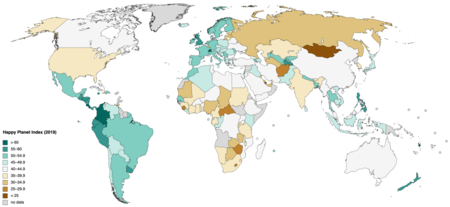Only months before I moved to Bhutan I was introduced to the country by an article that gushed about Gross National Happiness, a concept created by the Bhutanese king in 1972 to guide development. Rather than measuring economic growth, Bhutan aimed for happiness through the four pillars — natural environment, good governance, cultural values and sustainable development. The idea made a lot of sense to me and while it wasn’t pivotal to my decision to move there, it gave me something else to investigate.
Gross Domestic Product, the dominant measure of progress in the West counts industry and the cost of cleaning up pollution as a positive. In this time of concern about our impact on the environment, it makes more sense to consider this cost of cleaning up (or not cleaning up) our mess as a negative against progress. The same goes for any waste of non-renewable resources as an asset squandered loses its value as an asset. Just look at Brunei which has almost run out of oil and has to create a new economy.
During my time in Bhutan GNH guided policy in decisions such as banning plastic shopping bags and limiting the cutting down of trees for firewood to one per family per year. It had previously guided the introduction of television and the internet into Bhutan while blocking MTV and other channels that might distract people from the pursuit of true happiness. The government told us that 70% of the country was covered by forest, which was above the target of 60%, but that still didn’t feel like a real measure of happiness.

Happiness makes for an odd science with a subjective definition and a moving goal, but I’d love to live in a country that accounts for “benefits people derive from nature – clean air, water and soil; a stable climate; recreational and spiritual opportunities to connect with nature”. Will you let me live with you again one day, Bhutan?